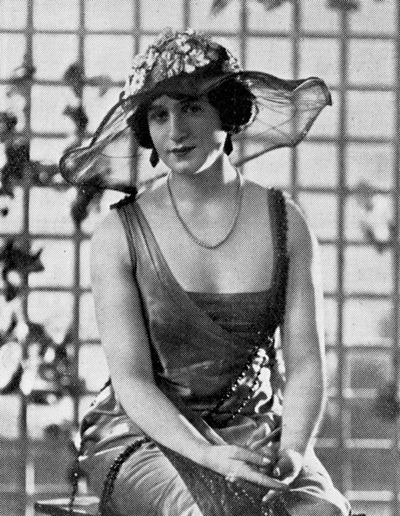![[Home]](/graphics/2020-02_logo.png)
![[Home]](/graphics/2020-02_logo.png)

January, 2024: Mieke Van Vulpen (Facebook account here) has submitted an application to Canada Post to honour Ross. Uou can help make this happen by writing a support letter to: Chairperson of the Stamp Advisory Committee // CANADA POST CORPORATION // 2701 RIVERSIDE DRIVE SUITE N0875 // OTTAWA ON K1A 0B1.
Here's a CBC piece about the project.
Born in Pugwash, Nova Scotia, Ross Hamilton enlisted as a private with the Canadian Army during the First World War. He was best known as female impersonator "Marjorie" in the Dumbells entertainment troupe. The concert troupe’s first performance took place in early April, 1917, in a barn near the front in the French countryside, just days before the major offensive took place.
The Dumbells (named after the Third Division's insignia: crossed red dumb-bells, signifying strength) entertained the troops in the trenches in 1917 and 1918, and went on to enjoy national and international success as a highly popular vaudeville act until 1932. The commander of the Canadian Army's Third Division, understood that an army's morale is as important as its equipment and rations, and quickly gave permission. His instructions to their leader, Captain Merton (Mert) Plunkett, were simple: "Be ready to put on a show any place, any time." In 1921, the troup played on broadway for nine weeks.
To put it in drag terms, that man could paint. Ross purportedly would arrive backstage a full half-hour before the rest of the team to get ready as Marjorie, and he did all of his own makeup for shows.
The group performed everything - from comedy skits to emotional ballads about lovers separated by the war. Ross was so popular that he used to have to change out of costume before going back to the barracks, for fear of being mobbed. There is even a story of one officer who snuck backstage at one of their shows with a bouquet of flowers to try and ask “Marjorie” out on a date. Hamilton’s cast members had to break it to the poor officer that he just wasn’t Marjorie’s type. After the war, Hamilton and the Dumbells toured North America and the UK -- including shows at the Coliseum, a performance for the King of Belgium, and 9 weeks on Broadway.
After the war, the group played to capacity houses across Canada and in every major city in the United States, but in 1928, real girls were introduced to the review and Hamilton slipped slowly from public view.
The vaudeville group "thought they needed girls to attract the boys," Hamilton said a few years before his death, "and believe me we did, too. I didn't dare leave the show without first changing into men's clothes."
He also served in the Second World War but was discharged quietly in August, 1941 "for reasons other than medical." In One of the Boys: Homosexuality in the Military during World War II Paul Jackson says, "he became a disturbing presence for the administration as a result of the more private sexual pleasures he was sharing with recruits in the showers."
However, like many queer people in history, Ross persevered and still managed to find joy in his retirement. He built a charming log cabin in Pleasant Valley, just south of Truro, and split his time between there and his hometown of Pugwash. He was known to be an incredibly generous and warm person who became a pillar of his home community. He lived a well-deserved quiet life in his later years: chopping wood, tending to his garden, and reading. He died in 1965 at the age of 76 at Camp Hill Hospital after a 7-week illness.
Ross’s legacy has largely been erased from the history of the First World War because of his sexuality.
Tags: HistoryPeople PersonCategory